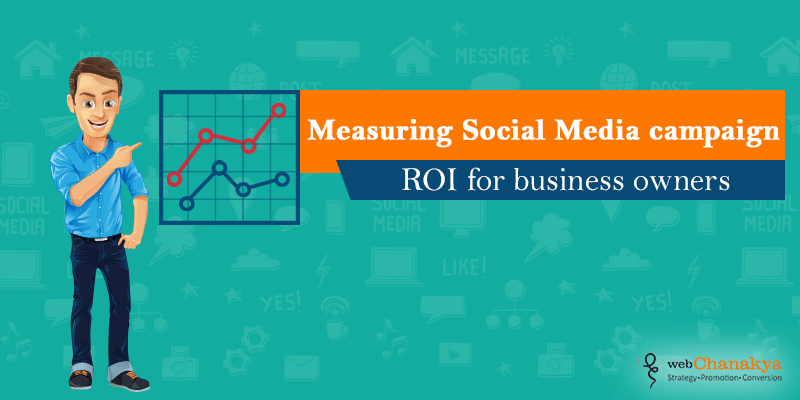
How to write a winning script for your next corporate video
May 5, 2016
The art of increasing e-commerce sales during festive season
May 10, 2016There’s no longer a doubt for small businesses regarding whether being on social media is a good idea or not. The distinguishability and connectivity offered by social media has convinced most business owners that it’s worth their while.
Investing time or money into an ecommerce social media campaign isn’t something that any business owner should take casually. So before committing substantial resources to a new media campaign, it’s wise to understand what your expected ROI will be and how you’ll measure it.
In case you are not familiar, “ROI” stands for return on investment. Typically, ROI is measured as a percentage change, but the basic goal is to show that your investment in a given product or opportunity has a measurable benefit.
ROI can be measured in two ways:
Financial that includes: Sales, Revenue and Transaction
Non-financial that comprises of: Visitor, Page view, fan and follower.
This can be tracked and calculated with the key performance indicate (KPI) that helps in converting transactions, new customer, sales and revenue.
One challenge in measuring ROI for your social campaigns lies in the fact that many campaigns result in interactions on the client’s social platforms, rather than on their business website. Yet these interactions on these social media sites have a considerable offline impact.
1. Define your social media goals
While setting these goals, consider other aspects that can benefit you with social. By identifying areas where you or a client wants to see growth, you’ll better be able to target more effective social strategies.
In order to determine the effectiveness of your efforts, you have to track everything:
• Online purchases
• Online contact forms
• EBook downloads
• Video views
• Social interactions (from a growing Twitter following to more Facebook likes, to name just a few)
All this can be tracked with ingrained platform insights or simple Google Analytics custom reports.
2. Track Conversions
The easiest way to track your social media goals is by using Google Analytics. How you track will differ with your social media platforms and conversion goals.
Reach:
More facebook fans, twitter followers ensure that you have greater ROI for any promotion or campaign. Reach can be tracked within the social media platform.
Traffic:
Getting visitors to your homepage or another URL where conversion happens is one major goal.
Leads:
It helps to track the leads coming from each denoting site.
Customers:
Track the number of leads that can be converted into customers.
3. Your Social Media Expenses
• Man-hours:
Your time is valuable. Whether you’re solo, or have a social media team, add up the man-hours that go into a specific social media marketing campaign over a specified period of time. Measure this investment per-campaign.
• Content:
Did you get a landing page written by a professional copywriter? All the content related cost cannot be overlooked.
• Social media tools:
Using Facebook and Twitter is free, but if you’re using a tool or other social media management software, you need to add those costs in.
• Ad costs:
If you’re running a Promoted Tweet, Facebook Ad or boosting a Facebook post, add in that cost as well. Once you have your expenses calculated, you’ll be able to calculate your ROI for each social media campaign.
4. Add monitoring value to each conversion
Using historical data:
If you have assigned and know the lifetime value of each customer, then it becomes easy to backtrack the conversion from any point.
Using guesstimating:
If you do not have historical data, then use your experience and calculate the lifetime value of a customer.
5. Collect and Report the Data
Whatever reporting tool you decide to use, choose one that allows you to focus on metrics that drive action. You want the tools to show the results of your efforts, such as percentages particularly positive percentage changes in the social media site’s engage
Though no social media ROI measurement is perfect or complete. Using these methods, will be revealing of current ROI, and create benchmarks against which to measure future social media efforts and strategies.
However, if you’re willing to invest the time and money to conduct a good social media campaign, there’s a good chance you’ll see a solid ROI from your project.





